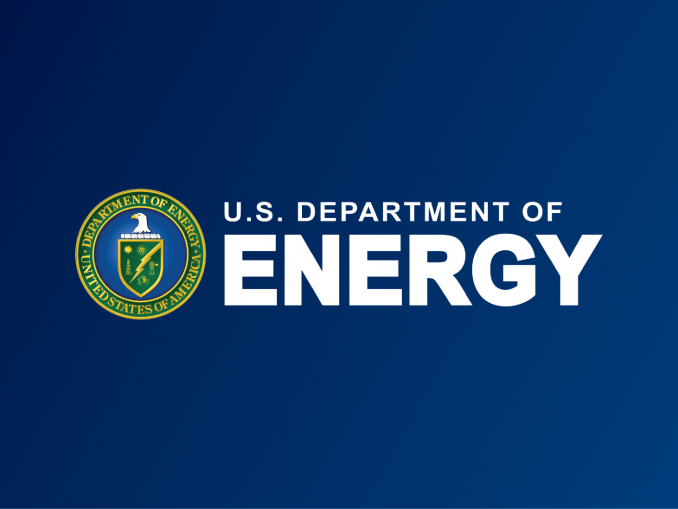
WASHINGTON, D.C. — The U.S. Department of Energy (DOE) today celebrated the two-year anniversary of the enactment of President Biden’s Bipartisan Infrastructure Law, the largest long-term investment in America’s infrastructure in nearly a century. The Bipartisan Infrastructure Law—a key component of the President’s Investing in America agenda and Bidenomics—provided DOE with $62 billion to lay the foundation for a strong, people-centered clean energy economy that supports new economic opportunities, lowers costs for American families and businesses, and revitalizes and strengthens America’s global manufacturing competitiveness. Together with the Inflation Reduction Act and the CHIPS and Science Act, the Bipartisan Infrastructure Law is driving unprecedented investments in clean energy projects across the country, creating good-paying jobs, and supporting healthier communities while also delivering on the Biden-Harris Administration’s ambitious clean energy and climate goals.
“When President Biden began his term, he laid out a vision for a prosperous, clean energy economy that invests in the American people and reestablishes our nation’s manufacturing might—thanks to the Bipartisan Infrastructure Law the President ensured that ambitious goal was achievable,” said U.S. Secretary of Energy Jennifer M. Granholm. “I’m so proud of the progress DOE has made over the last two years to implement this historic legislation fairly and equitably, underscoring this Administration’s commitment to reversing the legacy of inequity and underinvestment woven into our country’s past infrastructure projects.”
In the two years since President Biden signed the Bipartisan Infrastructure Law, DOE continues to effectively implement—and has hit considerable milestones in its implementation of—the $62 billion Congress provided in this once-in-a-generation legislation. DOE remains laser-focused on tackling the climate crisis while fostering more prosperous, healthier, and resilient communities across the country as part of its efforts to meet its Congressionally-directed obligations, including by standing up 60 new programs, administering expanded funds for 12 existing programs, and executing new funding authorities.
Through the Investing in America agenda, President Biden is delivering an “Infrastructure Decade” that is unlocking access to economic opportunity, creating good-paying jobs, boosting domestic manufacturing, and growing America’s economy from the middle up and bottom out—not the top-down.
Already, the Biden-Harris Administration is breaking ground and cutting ribbons on projects to rebuild our roads and bridges, deliver clean and safe water, clean up legacy pollution, expand access to high-speed internet, and build a clean energy economy. To date, the Administration has announced over $400 billion in funding and over 40,000 specific projects, reaching over 4,500 communities across all 50 states, D.C., and the territories.
Key highlights include:
Strengthening America’s Grid and Investing in Reliable, Affordable Power
- $5.5 billion for over 160 states, Tribes, and companies to increase grid resilience, including the largest single investment in electric transmission and distribution infrastructure in the history of the United States to improve the reliability of the grid and support clean energy generation.
- More than $38 million for hydropower facilities throughout the country to support waterpower’s continued growth while maintaining and expanding good-paying jobs and increasing access to affordable, clean power where it is needed most.
Accelerating the Deployment of Clean Energy Technologies
Restoring America’s Manufacturing Competitiveness
- More than $1.9 billion awarded for the first cohort of battery materials processing and component manufacturing projects to increase battery and critical material manufacturing capacity throughout the country and support President Biden’s whole-of-government supply chain strategy to strengthen America’s energy independence, economic competitiveness, and national security.
- $22 million to 12 state-run programs through State Manufacturing Leadership Program to help small- and medium-sized manufacturing facilities utilize smart manufacturing technologies to improve production efficiency and reduce costs, support new domestic manufacturing opportunities, and cut harmful emissions.
Building America’s Clean Transportation Future
Supporting Clean Energy Solutions for Families, Businesses, and Communities
More Impacts to Come
- Up to $6 billion to accelerate decarbonization projects in energy-intensive industries, such as iron and steel, aluminum, cement and concrete, and provide American manufacturers a competitive advantage in the emerging global clean energy economy.
- Up to $3.9 billion available through the Grid Resilience and Innovation Partnerships Program to enhance grid flexibility and resilience against growing threats of extreme weather and climate change while supporting meaningful community and labor engagement and investing in the American workforce.
- Up to $3.5 billion to boost domestic production of advanced batteries and battery materials nationwide by supporting new, retrofitted, and expanded domestic facilities for battery-grade processed critical minerals, battery precursor materials, battery components, and cell and pack manufacturing.
- $60 million to train a qualified, diverse clean energy workforce, including:
- $10 million Career Skills Training Program this past September started accepting applications from non-profit leaders to fund partnerships with industry and labor to set students up for success—through classroom instruction and on-the-job training—to install energy efficient building technologies.
- $10 million Building Training and Assessment Centers Program received applications from higher education institutions this past summer for building technicians and engineers training centers focused on providing to small businesses, K-12 schools, hospitals, and other buildings.
- $40 million Energy Auditor Training Grant Program announced funding to help eligible states train Americans to conduct energy audits of homes and buildings—and in turn helping customers save money on their energy bills and reducing pollution through healthier homes and buildings.
The Biden-Harris Administration is dedicated to ensuring the benefits of the clean energy transition flow directly to impacted communities and building a more equitable and inclusive clean energy future. As part of the President’s commitments to invest in America’s workforce, support high-quality American jobs, advance environmental and energy justice, and strengthen Tribal energy sovereignty, projects supported by the Bipartisan Infrastructure Law are required to develop and ultimately implement a comprehensive Community Benefits Plan. President Biden’s Justice40 Initiative aims to ensure that 40% of the overall benefits of certain Federal investments positively impact disadvantaged communities that are marginalized by underinvestment and overburdened by pollution.
Find out more about DOE’s efforts to implement the Bipartisan Infrastructure Law and other components of President Biden’s Investing in America agenda.








